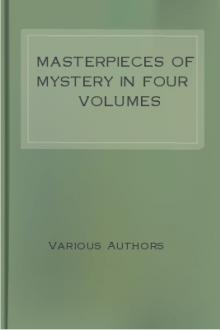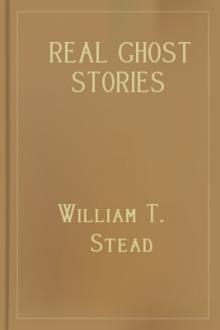Varney the Vampire; Or, the Feast of Blood by Prest and Rymer (ereader iphone .txt) 📗

- Author: Prest and Rymer
Book online «Varney the Vampire; Or, the Feast of Blood by Prest and Rymer (ereader iphone .txt) 📗». Author Prest and Rymer
"Aye, aye, sir," said the tar, and these two originals, who so perfectly understood each other, walked away, conversing as they went, and their different voices coming upon the ear of Charles, until distance obliterated all impression of the sound.
Charles paced to and fro in the room where he had held this brief and conclusive conversation with his uncle. He was thoughtful, as any one might well be who knew not but that the next four-and-twenty hours would be the limit of his sojourn in this world.
"Oh, Flora—Flora!" he at length said, "how happy we might to have been together—how happy we might have been! but all is past now, and there seems nothing left us but to endure. There it but one chance, and that is in my killing this fearful man who is invested with so dreadful an existence. And if I do kill him in fair and in open fight, I will take care that his mortal frame has no power again to revisit the glimpses of the moon."
It was strange to imagine that such was the force of many concurrent circumstances, that a young man like Charles Holland, of first-rate abilities and education, should find it necessary to give in so far to a belief which was repugnant to all his best feelings and habits of thought, as to be reasoning with himself upon the best means of preventing the resuscitation of the corpse of a vampyre. But so it was. His imagination had yielded to a succession of events which very few persons indeed could have held out against.
"I have heard and read," he said, as he continued his agitated and uneasy walk, "of how these dreadful beings are to be in their graves. I have heard of stakes being driven through the body so as to pin it to the earth until the gradual progress of decay has rendered its revivification a thing of utter and total impossibility. Then, again," he added, after a slight pause, "I have heard of their being burned, and the ashes gathered to the winds of Heaven to prevent them from ever again uniting or assuming human form."
These were disagreeable and strange fancies, and he shuddered while he indulged in them. He felt a kind of trembling horror come over him even at the thought of engaging in conflict with a being, who perhaps, had lived more than a hundred years.
"That portrait," he thought, "on the panel, is the portrait of a man in the prime of life. If it be the portrait of Sir Francis Varney, by the date which the family ascribe to it he must be nearly one hundred and fifty years of age now."
This was a supposition which carried the imagination to a vast amount of strange conjectures.
"What changes he must have witnessed about him in that time," thought Charles. "How he must have seen kingdoms totter and fall, and how many changes of habits, of manners, and of customs must he have become a spectator of. Renewing too, ever and anon, his fearful existence by such fearful means."
This was a wide field of conjecture for a fertile imagination, and now that he was on the eve of engaging with such a being in mortal combat, on behalf of her he loved, the thoughts it gave rise to came more strongly and thickly upon him than ever they had done before.
"But I will fight him," he suddenly said, "for Flora's sake, were he a hundred times more hideous a being than so many evidences tend to prove him. I will fight with him, and it may be my fate to rid the world of such a monster in human form."
Charles worked himself up to a kind of enthusiasm by which he almost succeeded in convincing himself that, in attempting the destruction of Sir Francis Varney, he was the champion of human nature.
It would be aside from the object of these pages, which is to record facts as they occurred, to enter into the metaphysical course of reasoning which came across Charles's mind; suffice it to say that he felt nothing shaken as regarded his resolve to meet Varney the Vampyre, and that he made up his mind the conflict should be one of life or death.
"It must be so," he said. "It must be so. Either he or I must fall in the fight which shall surely be."
He now sought Flora, for how soon might he now be torn from her for ever by the irresistible hand of death. He felt that, during the few brief hours which now would only elapse previous to his meeting with Sir Francis Varney, he could not enjoy too much of the society of her who reigned supreme in his heart, and held in her own keeping his best affections.
But while Charles is thus employed, let us follow his uncle and Jack Pringle to the residence of Varney, which, as the reader is aware, was so near at hand that it required not many minutes' sharp walking to reach it.
The admiral knew well he could trust Jack with any secret, for long habits of discipline and deference to the orders of superiors takes off the propensity to blabbing which, among civilians who are not accustomed to discipline, is so very prevalent. The old man therefore explained to Jack what he meant to do, and it received Jack's full approval; but as in the enforced detail of other matters it must come out, we will not here prematurely enter into the admiral's plans.
When they reached the residence of Sir Francis Varney, they were received courteously enough, and the admiral desired Jack to wait for him in the handsome hall of the house, while he was shewn up stairs to the private room of the vampyre.
"Confound the fellow!" muttered the old admiral, "he is well lodged at all events. I should say he was not one of those sort of vampyres who have nowhere to go to but their own coffins when the evening comes."
The room into which the admiral was shewn had green blinds to it, and they were all drawn down. It is true that the sun was shining brightly outside, although transiently, but still a strange green tinge was thrown over everything in the room, and more particularly did it appear to fall upon the face of Varney, converting his usually sallow countenance into a still more hideous and strange colour. He was sitting upon a couch, and, when the admiral came in, he rose, and said, in a deep-toned voice, extremely different to that he usually spoke in,—
"My humble home is much honoured, sir, by your presence in it."
"Good morning," said the admiral. "I have come to speak to you, sir, rather seriously."
"However abrupt this announcement may sound to me," said Varney, "I am quite sure I shall always hear, with the most profound respect, whatever Admiral Bell may have to say."
"There is no respect required," said the admiral, "but only a little attention."
Sir Francis bowed in a stately manner, saying,—
"I shall be quite unhappy if you will not be seated, Admiral Bell."
"Oh, never mind that, Sir Francis Varney, if you be Sir Francis Varney; for you may be the devil himself, for all I know. My nephew, Charles Holland, considers that, one way and another, he has a very tolerable quarrel with you."
"I much grieve to hear it."
"Do you?"
"Believe me, I do. I am most scrupulous in what I say; and an assertion that I am grieved, you may thoroughly and entirely depend upon."
"Well, well, never mind that; Charles Holland is a young man just entering into life. He loves a girl who is, I think, every way worthy of him."
"Oh, what a felicitous prospect!"
"Just hear me out, if you please."
"With pleasure, sir—with pleasure."
"Well, then, when a young, hot-headed fellow thinks he has a good ground of quarrel with anybody, you will not be surprised at his wanting to fight it out."
"Not at all."
"Well, then, to come to the point, my nephew, Charles Holland, has a fancy for fighting with you."
"Ah!"
"You take it d——d easy."
"My dear sir, why should I be uneasy? He is not my nephew, you know. I shall have no particular cause, beyond those feelings of common compassion which I hope inhabit my breast as well as every one else's."
"What do you mean?"
"Why, he is a young man just, as you say, entering into life, and I cannot help thinking it would be a pity to cut him off like a flower in the bud, so very soon."
"Oh, you make quite sure, then, of settling him, do you?"
"My





Comments (0)